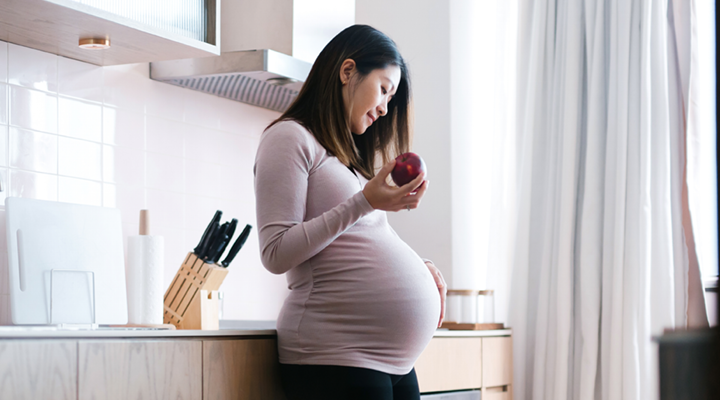Pregnancy is a time of joy and, at times, uncertainty for many expecting mothers. With all the forums, books, and well-intended strangers giving advice, it can be hard to feel confident in the decisions one makes during pregnancy. One decision that women can be confident in is going to the dentist when they are expecting. Keeping up with routine dental care is just one way to help mom and baby stay healthy before and after birth.
Common myths during pregnancy
For centuries, pregnant women have heard countless wives’ tales and myths about how the things they do will affect their unborn babies. Some of these may sound very outlandish. For example, in some cultures expecting mothers are not supposed to step over ropes because “it can cause umbilical cord problems.” Today, examples of common myths during pregnancy include that you can tell a baby’s sex based on its heartbeat, cravings, and how a mother is carrying.
Unfortunately, one myth expecting mothers may hear is to skip the dentist. This myth can lead to serious health problems for mom and baby.
Debunking the myth that expecting mothers should skip the dentist
Only 46% of women in the United States see a dentist for cleaning during pregnancy. This means that less than half of expecting women are receiving proper dental care. The reasons that women may skip the dentist during pregnancy are full of misinformation. For example, the idea that all dental procedures can wait until after birth is incorrect. In fact, skipping the dentist can lead to premature labor. This is because a periodontal infection can lead to inflammation around the uterus which may trigger labor.
Another concern for some pregnant women is the use of x-rays and certain medications during pregnancy. If there is proper communication between the expecting mother and her dentist, adjustments will be made to ensure treatment is safe for both mother and baby.
In the past, x-rays were believed to be dangerous to unborn babies. The good news is that with proper shielding, a dental x-ray is perfectly safe for expecting mothers and their babies. Dentists often use a heavy, lead apron when taking x-rays for protection against harmful rays.
The use of medications and anesthesia for procedures is another common concern during pregnancy. It is important to let your dentist know you are expecting, even if you are not sure how far along you are. They will make sure any medication that is prescribed is safe for both mom and baby. Additionally, if an expecting mother needs anesthesia or numbing medication for a dental procedure, such as a root canal or cavity filling, they can feel confident that they are safe and will not harm the baby.
Reasons to see a dentist during pregnancy
Seeing a dentist during pregnancy is not only safe for both mom and baby, it is recommended by the American Dental Association, the American Congress of Obstetricians and Gynecologists, and the American Academy of Pediatrics. Proper dental care reduces the risk of dental problems for the mother and complications such as premature birth and low birth weight for the baby.
Here are some reasons why it is crucial for expecting mothers to see their dentist:
- Pregnancy increases the risk of dental complications: Changes in certain hormones during pregnancy can increase the risk of oral health problems. Up to seventy-five percent of pregnant women experience gingivitis. Gingivitis is the swelling or inflammation of the gums. Symptoms include tender or red gums and bleeding when brushing or flossing. Other dental problems pregnant women may experience include an increased risk of cavities and plaque buildup.
- Risk of preterm birth and low-birth weight: Mothers who neglect their oral health care during pregnancy are more likely to go into preterm labor and deliver babies with low birth weights according to a study from JDR Clinical and Translational Research. In another study, it was estimated that more than eighteen percent of preterm births are caused by periodontal disease. Babies who are born before full-term have a higher risk of medical problems such as breathing problems, serious infections, and heart conditions after birth. Later in life, they may experience intellectual and learning disabilities.
- Bacteria can pass to the baby: Mothers who have excess bacteria in their mouth may unintentionally pass it to their baby before and after birth. This can increase the risk of cavities as the child grows.
Skipping the dentist during pregnancy can be dangerous for both the mother and the unborn child. For expecting mothers, taking care of their oral health is not only essential for them but also for the oral and overall health of their babies.
Learn more ways to take care of your baby’s teeth.

